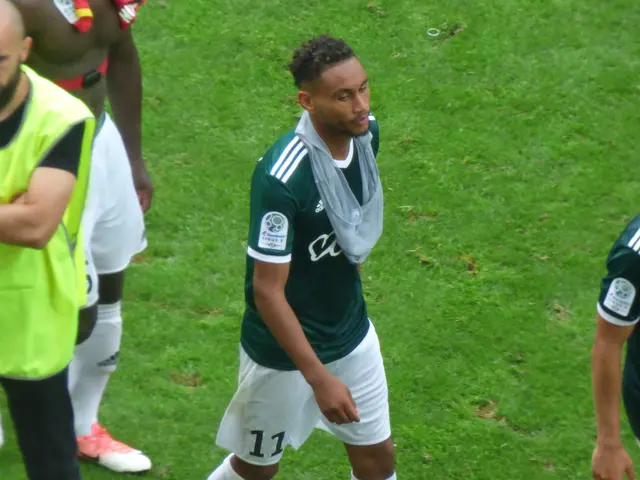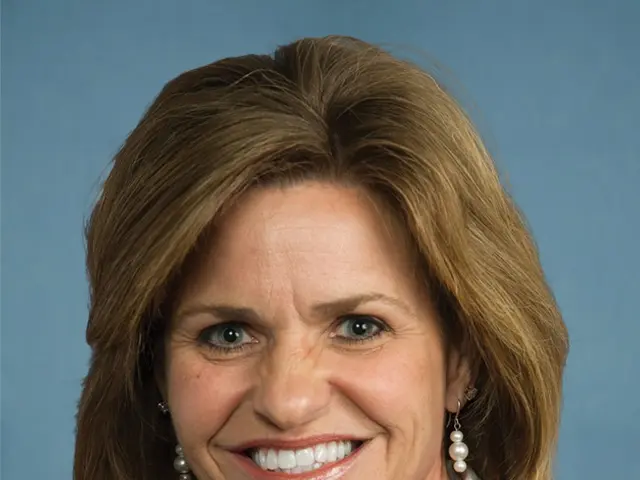Streaming titans Netflix, Disney, and Apple make their moves towards the Bundesliga, Germany's premier football league.
The DFL's International TV Contract Strategy: A Balance of Tradition and Innovation
The German Football League (DFL) is adjusting its international TV contract strategy, aiming to strike a balance between traditional broadcasting and digital expansion. The current approach prioritizes long-term exclusive agreements with established sports broadcasters like Sky, supplemented by digital content offerings [1].
In a recent statement, DFL CEO Steffen Merkel described the previous situation with several dozen contracts as a "patchwork." He emphasized the potential for unification, which would provide the DFL with more strategic options and enable future agreements across several countries or even globally, if beneficial [2].
One such partnership is with One Football, where the DFL is already appearing as its own channel in smaller international markets. However, this partnership falls under the "patchwork" that Merkel is working to move away from [3].
The DFL is not shying away from the digital age. Peer Naubert, the DFL manager responsible for international marketing, sees "great potential" in the US market. The league is also developing a backup plan for TV marketing through its 6.5% stake in the paid sports channel Dyn, offering a new opportunity for direct customer contact [4].
Meanwhile, the DFL is not ruling out the possibility of concluding contracts with major streaming providers like Netflix, Disney, and Apple. In fact, DFL CEO Merkel stated that it is part of the DFL's entrepreneurial strategy to explore new marketing options for the Bundesliga and 2. Bundesliga [5].
The Bundesliga's international TV contracts expire in 2029, and the DFL is keeping its options open. The league has appointed US agency Relevent Sports Group to centrally manage the media rights for the entire American continent from the 2026/27 season over several rights cycles [6].
The DFL's long-term plan to address issues in selling TV rights and changes in media markets is under scrutiny by the German Federal Cartel Office (Bundeskartelamt) [7]. Meanwhile, reports suggest that FC Bayern has parted ways with its board, which may have implications for the Bundesliga [8].
Elsewhere in European football, Disney+ has secured the TV rights for the UEFA Women's Champions League for five seasons across all of Europe, while Apple has acquired the worldwide broadcast rights to the North American football league MLS [9][10]. The existing media contract with ESPN for the US market, currently the largest individual deal valued at approximately 35 million euros per season, expires midway through next year [11].
In conclusion, the DFL's international TV contract strategy is a carefully crafted balance of maintaining stable broadcast revenue and gradual digital and streaming expansion, rather than an abrupt shift toward the major global streaming providers. The league is exploring new opportunities while remaining grounded in traditional broadcasting, ensuring a bright future for football in Germany and beyond.
[1] DFL.de [2] Sport-Bild.de [3] BILD.de [4] Spox.com [5] SWR.de [6] Sport1.de [7] Handelsblatt.com [8] Sport1.de [9] Deadline.com [10] ESPN.com [11] Sport1.de
The DFL is exploring partnerships with streaming giants like Netflix, Disney, and Apple, as part of their strategy to gradiently expand into the digital and streaming market, beyond traditional broadcasting [5]. This strategic approach aims to provide the DFL with more options for future agreements, potentially covering several countries or globally, while maintaining a balance with established sports broadcasters [2].





